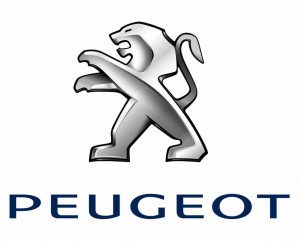Hours after announcing it would scale back – but continue – its alliance with PSA Peugeot Citroen, General Motors revealed it was selling off its 7% stake in the troubled French automaker.
Without those economic ties, industry observers say there appears to be even less of a reason for the two manufacturers to continue any long-term affiliation beyond the two product sharing deals and a few smaller arrangements they currently plan to move ahead with.
GM initially purchased its stake in Peugeot last year at a time when the two makers expected they could achieve $2 billion in savings by working together. Both companies have been losing billions in Europe in recent years. But since initially inking their alliance both have shifted strategies, raising ongoing questions about whether they could meet their original goals.
Indeed, GM has already written down its investment in Peugeot reflecting the French maker’s sharp decline in value. The Paris-based maker has been forced to lay plans for closing one of its plants even while turning to the French government for financial help.
(For more on GM’s initial announcement about scaling back the alliance, Click Here.)
More recently, Peugeot has been discussing a sale of equity to its Chinese partner, Dongfeng Motors.
GM, meanwhile, has put in place a turnaround plan for its money-losing European operations that also includes the closing of a German plant, a highly controversial step in a market where there are serious restrictions on any move that could reduce employment. Just days ago, GM announced it would pull its Chevrolet brand out of Europe to focus on its long-troubled Opel brand.
/2013/12/gm-scales-back-alliance-with-frances-peugeot/
In the first of two announcements regarding the alliance with PSA Peugeot Citroen, GM said the partners had dropped plans to produce a small car and a downsized engine. They will continue work on a crossover they have co-developed that will be built at a Peugeot plant in France, while GM’s plant in Zaragosa, Spain will assemble a new multi-purposes vehicle, or MPV, that will also be sold by Peugeot.
There will also be joint purchasing and logistics efforts, though observers question how that can achieve even the scaled-back cost savings target of $1.2 billion by 2018.
The deal “didn’t make sense from the beginning,” said David Sullivan, analyst with AutoPacific, Inc. Manufacturers frequently share product development and manufacturing if they don’t have the resources to enter a market segment on their own – without having to make an equity investment, Sullivan added.
On the other hand, even in its original form, the deal didn’t address what the two makers have needed most, he said, noting “This wasn’t going to reduce capacity.”
(GM shuttering its Australian manufacturing operations. Click Here for the details.)
Europe has faced a crisis with over-capacity worsened by the Continent’s worst economic downturn in decades. But most manufacturers have been playing a game of chicken, waiting to see if someone else would cut production first. The situation was worsened by those EU and national rules that make it far more difficult to close a plant than in the U.S.
GM and Peugeot finally blinked with each planning to close an assembly line. Fiat and Ford have also announced plant closings.

